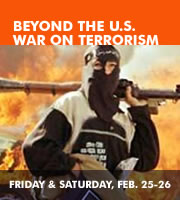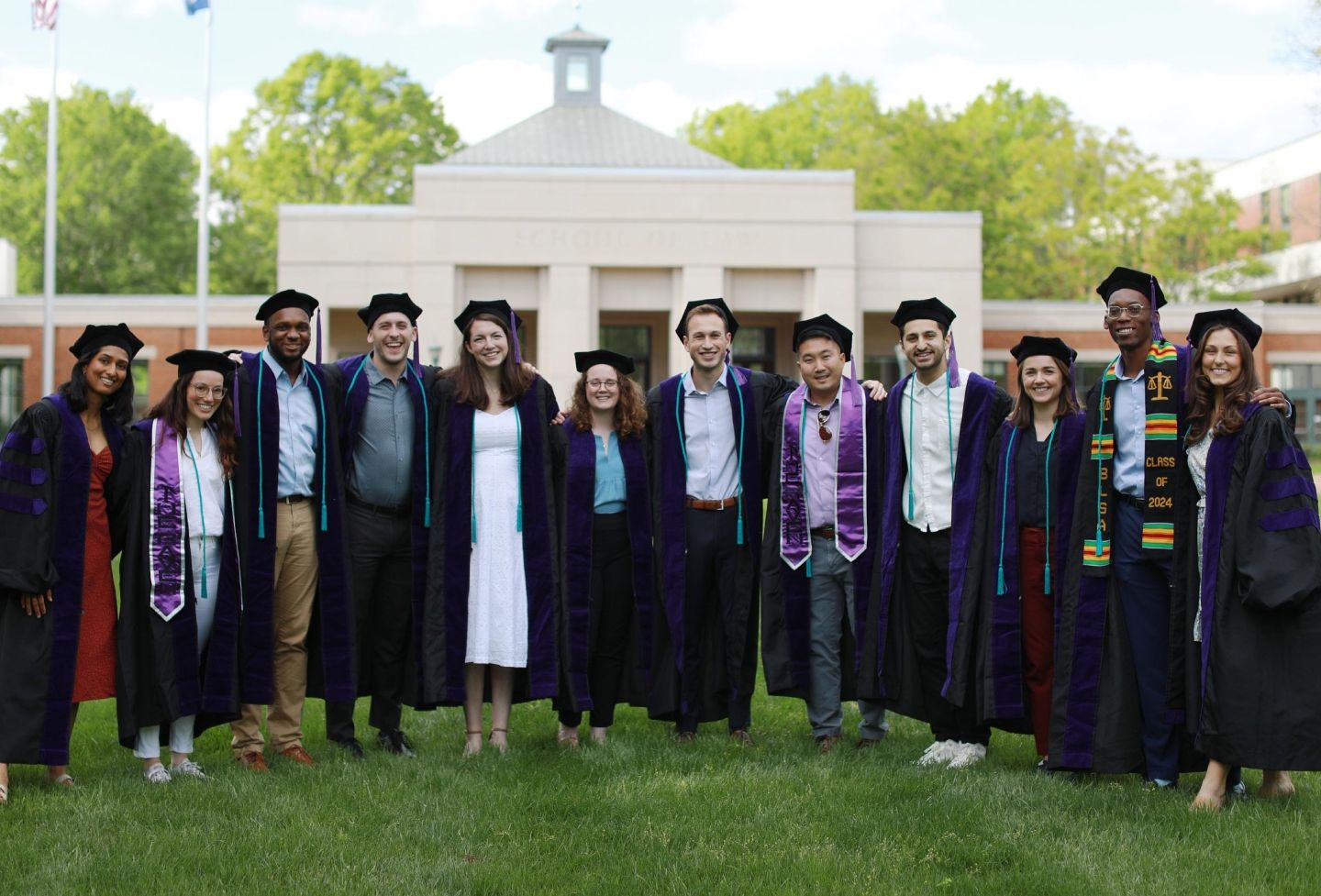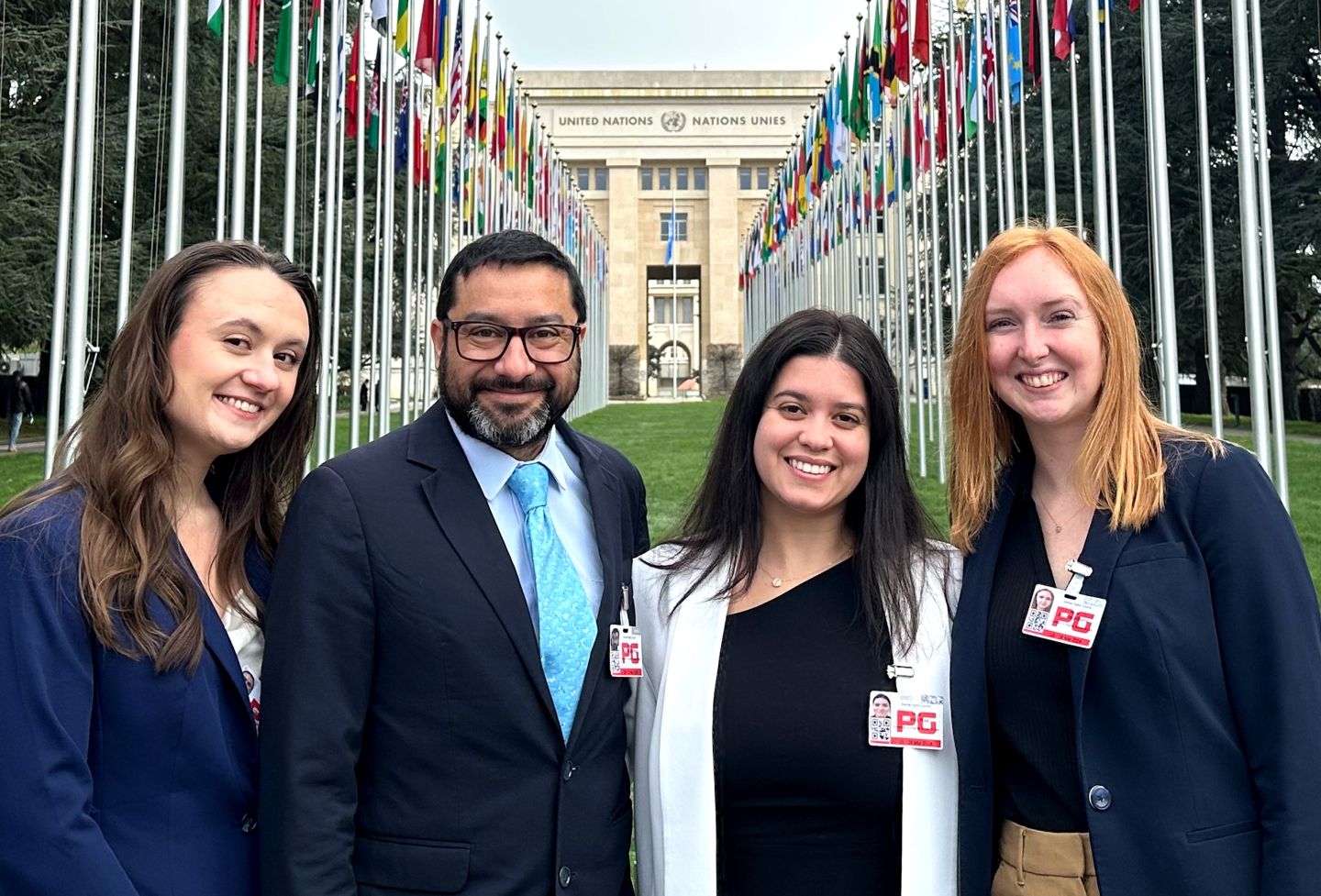Top Terrorism Experts to Address J.B. Moore Symposium
 Paul Pillar, National Intelligence Officer for the Near East and South Asia, and Ambassador W. Robert Pearson, Director General of the U.S. Foreign Service and former U.S. Ambassador to Turkey, will headline a two-day symposium at the Law School designed to compare different countries' legal response to terrorism. Co-sponsored by the Strategic Studies Institute at the U.S. Army War College and the John Bassett Moore Society of International Law, the symposium, titled "Beyond the U.S. War on Terrorism: Comparing Domestic Legal Remedies to an International Dilemma," will be held Feb. 25-26 in Caplin Auditorium.
Paul Pillar, National Intelligence Officer for the Near East and South Asia, and Ambassador W. Robert Pearson, Director General of the U.S. Foreign Service and former U.S. Ambassador to Turkey, will headline a two-day symposium at the Law School designed to compare different countries' legal response to terrorism. Co-sponsored by the Strategic Studies Institute at the U.S. Army War College and the John Bassett Moore Society of International Law, the symposium, titled "Beyond the U.S. War on Terrorism: Comparing Domestic Legal Remedies to an International Dilemma," will be held Feb. 25-26 in Caplin Auditorium.
Featured speakers also include Ruth Wedgwood of the Paul H. Nitze School of Advanced International Studies at Johns Hopkins University and Fionnuala Ni Aolain, Director of the Transitional Justice Institute at the University of Ulster in Northern Ireland, as well as speakers from Lebanon, Israel, Pakistan, Chile, and members of the U.S. Armed Services. The program offers participants the opportunity to hear from leading terrorism experts from around the world.
The symposium will survey the legal mechanisms nations have used in responding both to the attacks of September 11 and their own terror-related experiences. The program's six panels will cover issues ranging from the legal definitions of "war" and "terrorism," to anti-terrorism legislation, torture, immigration law, and the law of war. Pillar will give the keynote address on Friday, Feb. 25 in Caplin Pavilion.
For more information and to register:Visit the J.B. Moore Web page at https://content.law.virginia.edu/students/student-organizations#jbm or contact symposium director Robert Kirsch, at @email or (434) 242-7056. PLEASE REGISTER BY FEB. 23.
| FRIDAY, FEBRUARY 25 | |
|
9:30-10:30 |
REGISTRATION |
| 10:30-10:45 |
OPENING REMARKS |
| 10:45-12:00 |
PANEL I The Power of Words: A Legal Analysis of "War" and "Terrorism" Sponsored by the law firm of White & Case LLP For years, academics, policy-makers, and concerned citizens from around the globe have spent a great deal of energy debating the definitional issues surrounding anti-terrorism measures. For some, the focus has been on the meaning of "terrorism" and who should, or should not, be included under any blanket definition of the term. In light of the Bush Administration's response to September 11, others have begun to challenge whether a War on Terrorism is truly a "war" and what that means from a legal perspective. These ongoing definitional debates raise significant legal issues both in the United States and abroad. Our first panel will explore these issues in greater detail. Sami Zeidan, Permanent Mission of Lebanon to the United Nations Kate Martin, Center for National Security Studies Maj. Sean Watts, U.S. Army Judge Advocate General School Panel Moderator |
| 12:15-1:30 |
KEYNOTE LUNCHEON(Caplin Pavilion) Paul Pillar was appointed National Intelligence Officer for the Near East and South Asia in October 2000 upon returning to the Intelligence Community from the Brookings Institution, where he was a Federal Executive Fellow. He joined the Central Intelligence Agency in 1977 and served in a variety of analytical and managerial positions, including as chief of analytic units covering portions of the Near East, the Persian Gulf, and South Asia. He previously served in the National Intelligence Council as one of the original members of its Analytic Group. Pillar has been Executive Assistant to CIA's Deputy Director for Intelligence and Executive Assistant to Director of Central Intelligence William Webster. He headed the Assessments and Information Group of the DCI Counterterrorist Center, and from 1997 to 1999 was deputy chief of the center. Pillar is a retired officer in the U.S. Army Reserve. He served on active duty in 1971-1973, including a tour of duty in Vietnam. Pillar received an A.B. summa cum laude from Dartmouth College, a B.Phil. from Oxford University, and an M.A. and Ph.D. from Princeton University. He is the author of Negotiating Peace (Princeton, 1983) and Terrorism and U.S. Foreign Policy (Brookings, 2001; second edition 2004). |
| 1:30-2:45 |
PANEL II September 11 and the Evolution of U.S. Law As the U.S. Administration works to prevent future terrorist attacks against the United States, we have witnessed a growing tension between the need for national security and the preservation of civil liberties. Substantial changes have occurred in areas ranging from criminal investigations and immigration policies, to the structure of the intelligence community. As policymakers enact the recommendations of the 9/11 Commission, it is time to ask ourselves what has worked so far and what has not. Professor Ruth Wedgwood, SAIS, Johns Hopkins University Mike German, Former Special Agent for the F.B.I. Professor Fred Hitz, University of Virginia Panel Moderator
|
| 3:00-4:45 |
PANEL III The Trouble with Terrorism: Valuable Lessons From Europe Whether one is speaking of the Troubles in Northern Ireland, Basque separatists in Spain, or the Red Army Faction in Germany, terrorism is anything but a new phenomenon in Europe. As European governments have struggled over the years to protect their citizens from political violence, they have faced similar challenges as the United States in its ongoing war with Al Qaeda. Panel III will explore the difficult lessons of Europe's past. By combining historical analysis with a discussion of current counter-terrorism strategies, the panel will attempt to identify potential building blocks for future U.S. policies. Professor Karen Greenberg, NYU School of Law The Transatlantic Legal Alliance Professor Fionnuala Ni Aolain, University of Ulster Professor Rey Koslowski, Rutgers University Shawn Boyne, University of Wisconsin Panel Moderator |
| SATURDAY, FEBRUARY 26 | |
| 9:00-9:30 |
REGISTRATION(For those who did not attend Friday) |
| 9:30-10:45 |
PANEL IV Professor Andreas Feldmann, University of Chicago Professor Robert Goldman, Washington College of Law, American University Steven Monblatt, Inter-American Committee Against Terrorism Panel Moderator
|
| 11:00-12:45 |
PANEL V Ambassador W. Robert Pearson, U.S. Department of State Professor Jean-Francois Seznec, Columbia and Georgetown Universities Professor Bernard Freamon, Seton Hall Law School Panel Moderator |
| 12:45-1:45 |
BOX LUNCH NETWORKING SESSION WITH SPONSORING FIRMS AND SPEAKERS (Scott Commons) |
| 1:45-3:00 |
PANEL VI Professor Mia Bloom, University of Cincinnati Lt. Col. Amos Guiora, Case Western Reserve School of Law Col. Clyde J. Tate, II, U.S. Army, Staff Judge Advocate, Multi-National Corps, Iraq Panel Moderator |
| 3:00-3:15 | |
Founded in 1819, the University of Virginia School of Law is the second-oldest continuously operating law school in the nation. Consistently ranked among the top law schools, Virginia is a world-renowned training ground for distinguished lawyers and public servants, instilling in them a commitment to leadership, integrity and community service.


